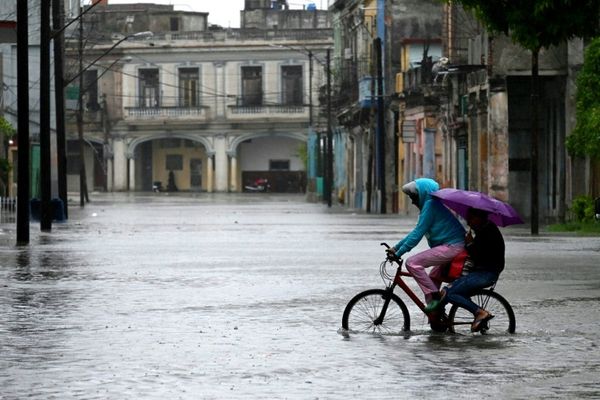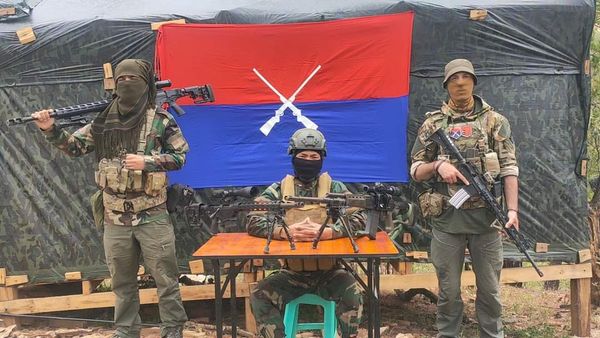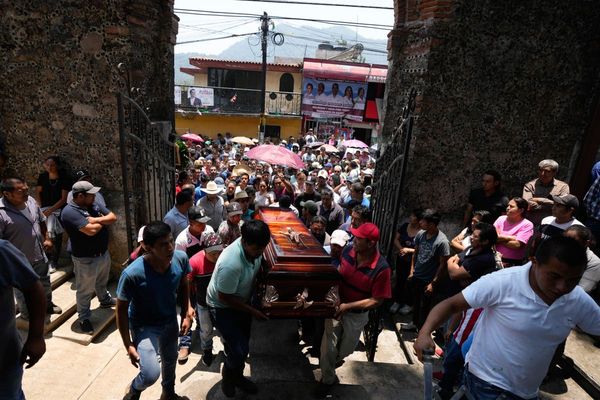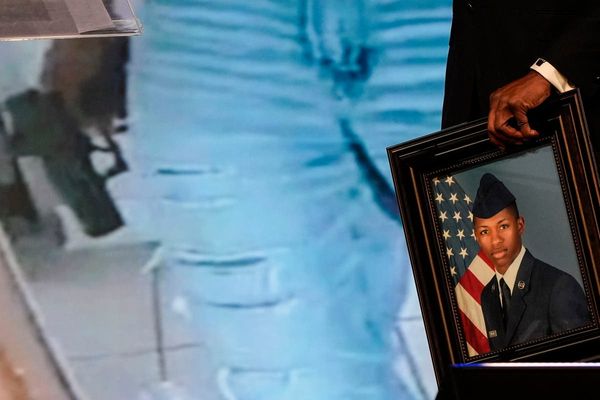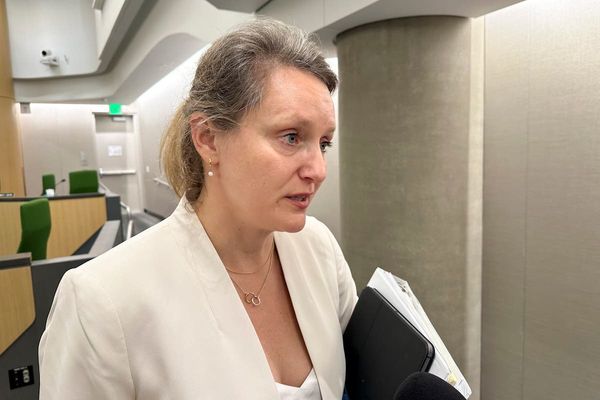
A youth hockey coach is set to appear in a Canadian court charged with assaulting a child after being cleared of abuse for the same incident by Hockey Canada’s “independent third party” that investigates abuse within the sport.
The charge laid by the Royal Canadian Mounted Police – the country’s national police service – demonstrates a disparity in standards between police investigations into abuse and internal civil investigations managed by sports organizations.
Also of note is that Sport Complaints – the independent third party that investigated the case on behalf of Hockey Canada – did not report the alleged abuse to law enforcement. The incident occurred in the province of Alberta where the Child, Youth, and Family Enhancemnet Act requires concerns of child sexual exploitation or abuse or neglect to be reported to authorities. According to Hockey Canada’s Maltreatment, Bullying, and Harrasment Treatment and Protection and Prevention Policy, “any Participant engaged in a Hockey Canada activity, who has reasonable grounds to suspect that a Minor Participant is or may be suffering or may have suffered from any form of child abuse, has a legal obligation to immediately report the suspicion.”
The criminal charge of assault, scheduled to go to trial in an Alberta court on Wednesday, relates to two incidents in 2023 involving an adult coach and a seven-year-old child. The Guardian is declining to name the parties involved as the charge involves a minor.
Sport Complaints cleared the coach of any allegations of abuse in its official report of the incidents, instead describing the two incidents now subject to the criminal charge as “inappropriate” and taking place in a “playful environment”.
The Sport Complaints decision to clear the coach of any allegations came after an investigator interviewed the child via Microsoft Teams, a method contrary to how investigators trained to interact with children would conduct an interview.
“If the parent doesn’t make a report to police then certainly the [investigating] organization should make a report to law enforcement immediately,” said Teresa Huizar, CEO of Washington DC-based National Children’s Alliance (NCA), an organization that assists law enforcement in best-practice investigations of child abuse.
“The actual criminal investigation should take precedence over what is happening within the sport. That ensures kids are getting justice and not getting retraumatized and not having to tell their story over and over again. But it also ensures that [the sport] isn’t giving improper privilege over community safety and is holding offenders accountable.”
Hockey Canada’s “duty to report” policy states any personnel or partner “who has reasonable grounds to suspect that a participant is or may be suffering or may have suffered from emotional, [or] physical abuse … shall immediately report to the local child protection agency and/or the local police detachment”.
Hockey Canada said in a statement to the Guardian that it “cannot comment on how the ITP handled a particular complaint” but “we can comment on the Maltreatment Complaint Management Policy that determines the work of the ITP, and the ITP’s responsibility to report matters to police.
“More specifically, Schedule A of the Maltreatment Complaint Management Policy describes the Investigation Procedure. Within Schedule A, Article 9 states “Should the investigator find that there are possible instances of offence under the Criminal Code or behaviour which might constitute child abuse under the relevant provincial/territorial legislation, the investigator shall advise the Complainant and the ITP that it must refer the matter to the police.” This means that ITP-appointed investigators are required to determine if the criteria for referring the matter to the police/law enforcement are met and they then inform the Complainant and the ITP accordingly.”
According to a witness statement seen by the Guardian made to the Royal Canadian Mounted Police in September 2023, the coach allegedly placed the then seven-year-old upside down in a locker room garbage can. The incident occurred after the child allegedly threw a puck in the direction of the coach.
The same statement to police alleges a second incident when the coach “aggressively grabbed” the child by his helmet cage, pulled his head forcefully forward and shook the child’s head from side to side and up and down. “His helmet half came off and his face mask/cage was up by his nose,” according to the statement. That incident allegedly occurred after the child shot a puck in the direction of the coach.
The Sport Complaints investigation into the incidents stated that the coach “denied any physical abuse, such as head jerking, or that the helmet ended halfway up [the child’s] head”. The coach said he “just put his fingers in [the child’s] mask cage and that the entire incident took place between 10-15 seconds.”
According to the report, the child told the investigator during the video interview that he did not recall the incident and that the coach did not hurt him.
“There is 40 years of science behind how children need to be interviewed,” said the NCA’s Huizar. “There is specialized forensics training that is available not only in the US but elsewhere and those models have the same underlying principles. They align with the scientific evidence about how children’s memory works, the language that needs to be used, how to ask questions in a non-leading way and that training is absolutely essential.
“When kids, especially very young children, are being questioned improperly they can think that they must have not answered a question right because the person keeps asking them questions again. Kids will guess what the adult is looking for. On serious criminal matters the interviews really must be done by trained forensic interviewers.”
The Sport Complaints investigation found that the ice hockey coach did not engage in verbal or physical abuse or contravene any policy of Hockey Canada, Hockey Alberta, or the Spruce Grove Minor Hockey Association, where the incidents are alleged to have taken place.
Police took a different view of events with officers obtaining a statement from the alleged victim at a child advocacy center – a specialist facility staffed with officers from local and national police forces, prosecutors, and staff from provincial health and children’s services, specializing in managing abuse cases that involve minors.
“Children require a developmentally appropriate, legally sound, way of approaching these conversations,” said Huizar whose organization supported agencies who worked with the FBI investigating the disgraced US gymnastics team doctor Larry Nassar following flaws in initial investigations.
Nassar was given an effective life sentence after pleading guilty to multiple charges after being initially charged with sexually assaulting at least 265 women and girls. The NCA and local child advocacy centers were not involved in the FBI’s initial investigations and interviews with survivors. As the Nassar investigation developed the FBI engaged specialist investigators and interviewers with specifically-trained CAC interviewers also brought into the investigation.
Later, the NCA agreed a series of memorandums of understanding with the FBI that provided a platform for the agency to work with local child advocacy centers and follow the CAC investigatory process in similar cases.
“Even some of the young adult victims of Nassar were interviewed by children’s advocacy centers,” says Huizar. “In the Nassar case there were hundreds of victims that needed to be interviewed which far outpaced the number of trained forensic interviewers that the FBI had.
“There are often good intentions with these third-party entities but there are deep flaws. Some of these flaws are very difficult to overcome the way things are currently structured even when you have people making some good faith efforts to do so. At least that is the case in the US.”
In a statement to the Guardian, which can be read in its entirety at the bottom of this story, Sport Complaints said: “The complaint process is confidential. As an Independent Third Party (ITP) to Hockey Canada, Sport Complaints is not permitted to provide any information regarding a specific complaint.”
It added: “We welcome further questions about the process, and will respond to the extent possible without compromising the integrity of the process and our obligations of confidentiality.”
Canadian member of parliament Kirsty Duncan, a former minister of sport under Justin Trudeau, said the government was lagging behind in a commitment to safe sport and needed to hold sports organizations to a higher level of accountability by threatening funding cuts.
“I made it clear to Sport Canada during my time as minister of sport that the system would only change if federal funding was tied to proven efforts on equity and ending abuse, discrimination, and harassment,” Duncan told the Guardian. “What’s needed as an immediate next step is a comprehensive, thorough, investigation of a national sport system that failed to protect athletes and young people for 50 years and continues to fall short.”
Speaking broadly as she is not permitted to comment on specific cases as a sitting member of parliament, Duncan said more transparency is needed of so-called “independent third parties” that manage investigations of abuse on behalf of sports organizations and called for a national enquiry into abuse in Canada’s sports system.
“How independent are third parties?” Duncan said. “Who are they accountable to and who is funding them? The national sports organizations and their collective power also need to be thoroughly investigated: Together, they are a formidable force that can shut down athletes, politics, and the media. An inquiry would absolutely have to look at independent third parties and putting new guardrails in place.”
• Sport Complaints issued the following statement in response to queries during the reporting of this story:
The complaint process is confidential. As an Independent Third Party (ITP) to Hockey Canada, Sport Complaints is not permitted to provide any information regarding a specific complaint.
The complaint process is governed by Hockey Canada’s Maltreatment Complaint Management Policy. Under the Policy, the ITP appoints investigators, adjudicators and/or mediators to perform their obligations under the Policy. The investigators, adjudicators and mediators are independent from and external to Sport Complaints and are selected for each complaint based on their experience, educational background and abilities - taking into consideration the nature of the complaint and the age of the participants. Investigators have background and experience that renders them qualified to address the complaint to which they are assigned.
Schedule A of the Policy stipulates the Investigation Procedure. The investigators comply with this Procedure and use their experience to determine the appropriate process within the requirements of the Policy, including who to interview and in what format.
Schedule A, article 9 of the Policy states that “Should the investigator find that there are possible instances of offence under the Criminal Code or behaviour which might constitute child abuse under the relevant provincial/territorial legislation, the investigator shall advise the Complainant and the ITP that it must refer the matter to the police.” Investigators are responsible for determining if the criteria for referring the matter to the police are met and advising the Complainant and ITP accordingly.
Once an investigator has completed their investigation, Schedule A, article 8 specifies that the investigator is to provide the investigation report to the ITP, who will disclose it to the adjudicative panel and may also disclose it, or a redacted version, to the Parties. Schedule A, article 10 of the Policy states that the adjudicator will take the facts as characterized by the investigation report as determinative, unless rebutted by the Parties. Meaning, the presumption will be that the investigation report is determinative of the facts; however, a party may rebut the presumption if they do not agree with the factual findings set out in the investigation report and if they can demonstrate that there was a significant flaw in the process followed by the investigator, or can establish that the report contains conclusions that are not consistent with the facts as found by the investigator. If the presumption is rebutted, the Adjudicator will determine to what extent the investigation report will be accepted as evidence and to what extent a witness or Party may be required to give fresh evidence at the hearing.
It appears to us as though there is an individual who is dissatisfied with the outcome of the complaint process, and is attempting to cast aspirations on Sports Complaints [sic], investigators and others as a result, and has found that they are able to use your news media organizations as a receptive avenue to do so. As noted at the outset, Sports Complaints’ [sic] ability to respond to any dissatisfaction with the complaint process is limited by the need to maintain confidentiality. In essence, this deprives our organization of any meaningful ability to respond to counter false, unfounded or misleading allegations about the conduct of any specific investigation. It is our view that, particularly where minors are involved, it should be abundantly clear that it is highly improper for any adult participant in the process to speak publicly about the process and involved minors, and equally irresponsible for the media to publish unverified allegations in this context.
We welcome further questions about the process, and will respond to the extent possible without compromising the integrity of the process and our obligations of confidentiality.
